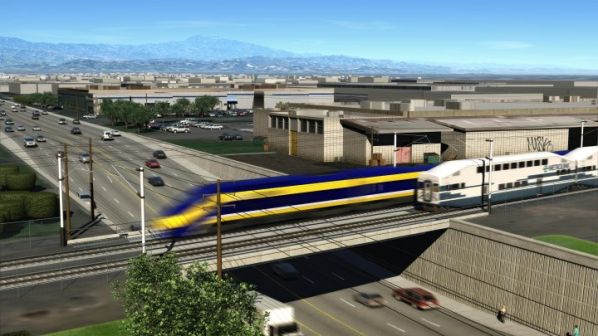CALIFORNIA’s high-speed project has been delayed by the “colossal mistake” of beginning work before full access to the right-of-way was secured, the head of the project says.
California High-Speed Rail Authority (CHSRA) CEO, Mr Brian Kelly, told CapRadio’s Insights programme that when the project was launched in 2013, CHSRA was instructed by the state government of California to meet certain spending deadlines in order to keep the funding allocated.
This resulted in work beginning before the full right-of-way had been secured, Kelly said, resulting in a stop-start approach to work which resulted in further delays and cost increases.
Kelly said that when he joined CHSRA in 2018 it was initially estimated that the project required 1750 parcels of land to complete the 191km section between Madera, Fresno and Bakersfield in the Central Valley, but this has since spiralled to around 2300 plots outstanding.
“We are working through those, but we have about 80% of the parcels in hand, and we are advancing construction work,” he says. “We’re in front of construction. That’s, I think, the important part right now and our effort going forward. We believe we’re going to have all the right of way done in 2021.”
The right-of-way issue was one of a number of points raised in a 36-page letter sent to California high-speed rail officials at the start of last month by contractor Tutor Perini, which warned that the project could miss a key 2022 federal deadline.
The letter, obtained by the Los Angeles Times, also alleged that a multitude of problems remained unresolved for years, including rapid turnover of state officials, continuing delays in obtaining land for the line and the state’s failure to secure agreements with outside parties, including utilities and freight railways.
Kelly acknowledged some of the points raised in the letter were reasonable, but said the project was beginning to make headway after being in a “quagmire” when he joined in 2018.
“We’ve made a lot of changes on staff, we’ve made a lot of changes on management, and I think that’s why we’re starting to move in the right direction,” he said. “This is a letter from a contractor who is ultimately trying to make the argument that whatever challenges there are, it’s got to be somebody else’s fault so we can get paid. This is part of the give and take of doing a megaproject with a contractor … they make claims. Our job is to evaluate those claims for merit and reasonableness.”
Kelly also said that the project had also been delayed several months because routine governmental tasks like legislative oversight hearings were pushed back due to Covid-19.
“(CHSRA is) not an operating entity, but certainly, we’ve been impacted by Covid,” Kelly says. “We’ve had to put in new safety measures. It’s affected our construction. It’s affected our environmental process. It’s affected all elements of what we do.”
For detailed data on high-speed projects around the world, subscribe to IRJ Pro.

